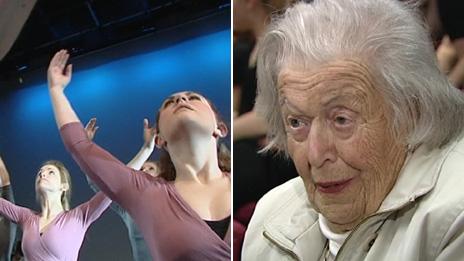Newmarket's 'little-known' WW2 Jewish refugee story
- Published
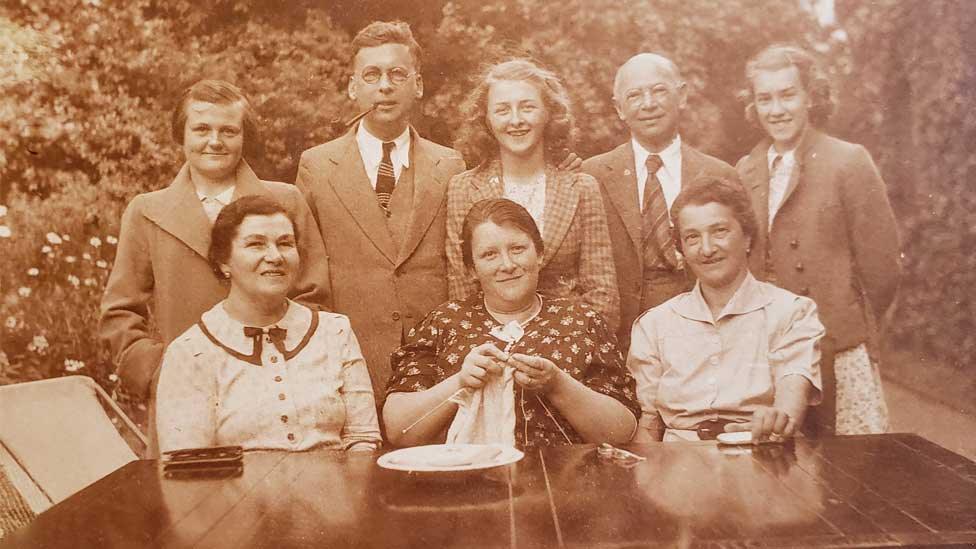
Fritz Ball (with pipe), Eva Ball (knitting) with unknown friends in Newmarket in 1939 - the museum is hoping publicity will help identify the others in the photograph
A "little-known story" of World War Two refugees has been uncovered after a woman donated her German Jewish grandfather's memoir to an archive.
Fritz Ball and his wife fled to Britain in May 1939 and were found a home with other refugees in Newmarket, Suffolk.
They were housed in part of what is now the National Horseracing Museum, external, where an exhibition will tell their stories.
Granddaughter Sandra Ball said they reveal "the importance of hospitality to those who have suffered".
The memoir, called Interned Three Times, was written in 1946, but it only covers the period 1939-40.
It was given to Sandra by a relative about 10 years ago, and she donated a translation to Suffolk Archives.
In a film created for the project, external, she said she was "deeply, deeply moved" at the interest in "the story of Fritz and how it links to to that of other refugees in Newmarket".
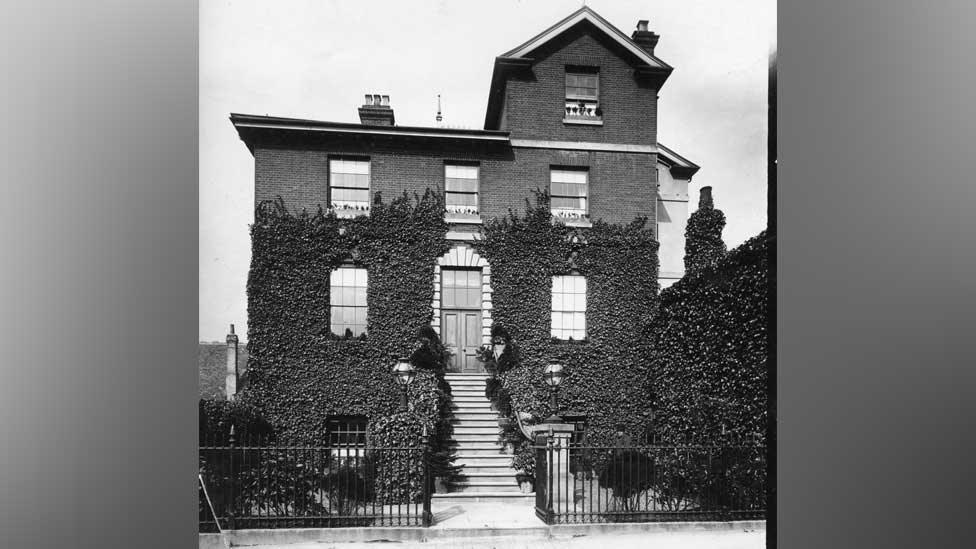
The refugees were initially warmly welcomed by people in Newmarket and housed in the Palace House Stables, now part of the National Horseracing Museum
The unpublished memoir charted his imprisonment - twice by the Nazis and once in Britain.
The Berlin-born lawyer was forced to stop practising law in Germany because of Nazi racial laws and he focused on remastering the cello.
As the regime increased its persecution of Jews, Fritz and his wife Eva sent their 15-year-old son to the United States in 1938.
Their two younger sons arrived in the UK on the Kindertransport, external in March 1939, while their parents arrived shortly afterwards, carrying two suitcases and two cellos, when Fritz was aged 46.
Gratitude 'disappeared'
Within days, they had moved to Newmarket, to share a house with 25 other Jewish refugees, ranging from a retired judge to a three-year-old child.
Their two boys, aged 10 and 12, had been homed in the south of England, some 150 miles (240km) from their parents.
The Newmarket refugees held concerts which were reviewed by local newspapers - until security concerns resulted in internment, external for Fritz and all the Newmarket refugees who were also German nationals, and therefore deemed to pose a potential security risk as "enemy aliens".
Mr Ball wrote in his memoir: "To be interned twice because one is viewed to be a Jew and not a German, and then to come here and to be interned because you are a German is too much for us.
"All the love and gratitude we felt for England has disappeared in one day."
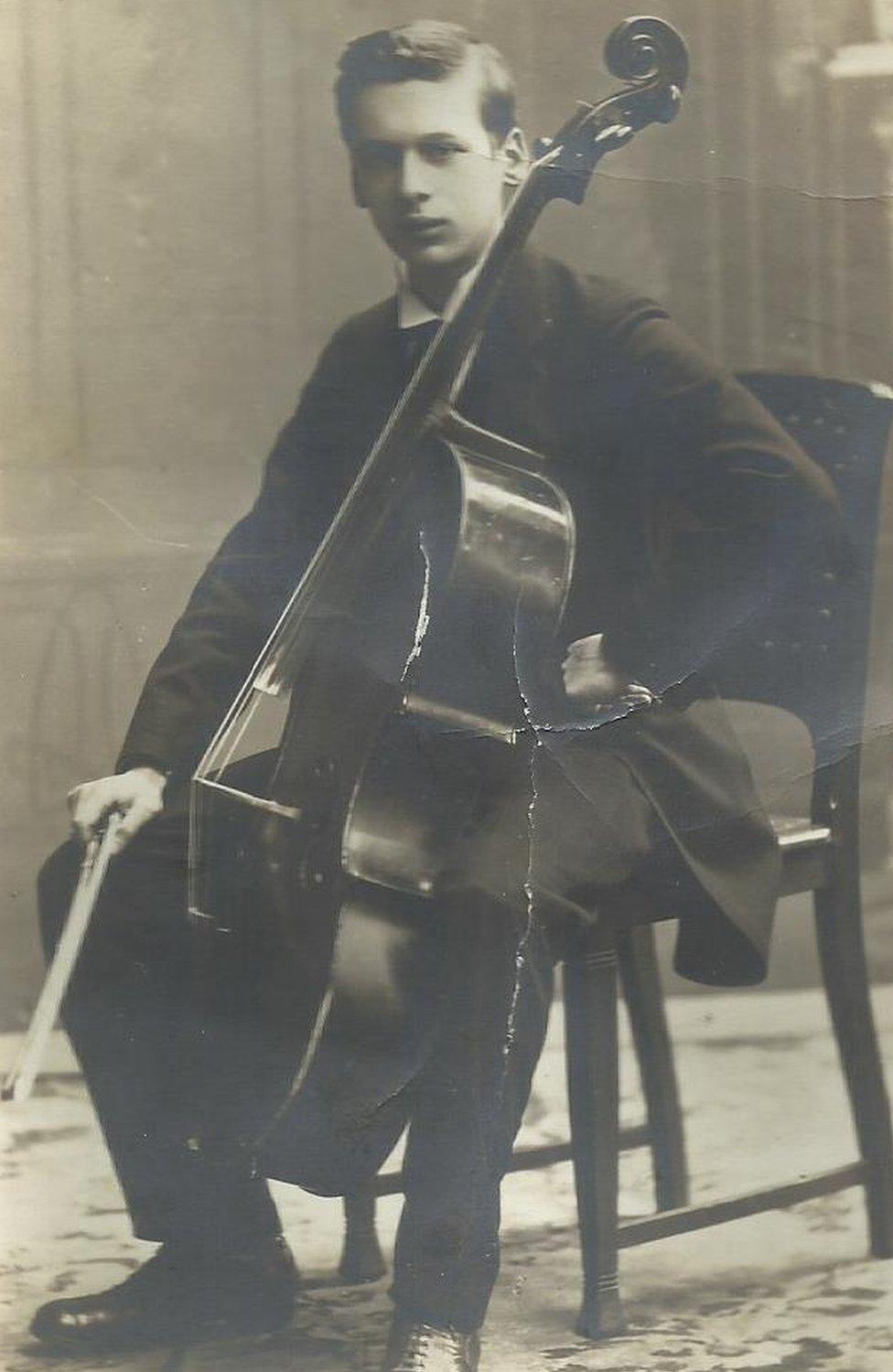
Fritz Ball, when he was a young man in Germany, met composer Hans Gal while he was interned in Britain
His memoir had not named the "wealthy Englishman" who provided them with their first English home.
Joint research by the National Horseracing Museum and Suffolk Archives, external revealed they were living in the Palace House Stables, external owned by racehorse owner Anthony Rothschild, external.
His internment, mostly on the Isle of Man, lasted from May to September 1940, and he had become friends with other musician refugees and they gave concerts to fellow inmates, until Fritz was deemed not to be a threat and was released.
Research revealed Fritz and Eva moved to Cambridge in 1942 and they were joined there by their two younger sons, but little else was known about their time there.
After the war, the couple emigrated to the US, which is where the whole family was reunited. He died in 1976 in New York City.
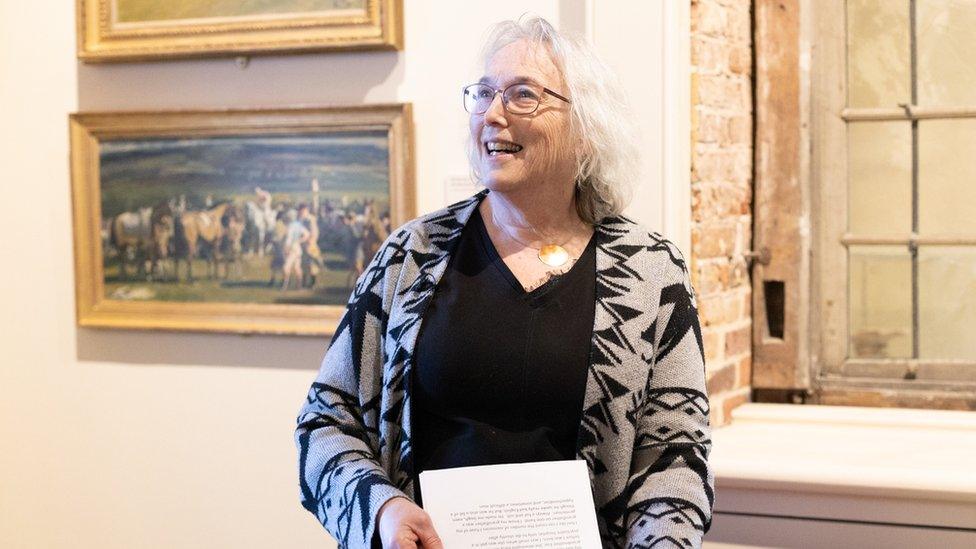
Sandra Ball translated her grandfather's memoir from German to English
His granddaughter Sandra was born in the US and now lives in the Netherlands.
She said she was pleased that the exhibition, called We Have To Move On, external, will tell "the little-known story of refugees in Newmarket".
Mr Ball's memoir ends in reflective mode.
"We were very angry that the English - who had saved us from the Nazis - had interned us," he wrote.
"But when I think back to my internment in England, it's with a very different feeling. It was an interesting time. A time I wouldn't want to miss."
The exhibition runs 10 April-7 August.

Find BBC News: East of England on Facebook, external, Instagram, external and Twitter, external. If you have a story suggestion email eastofenglandnews@bbc.co.uk, external
- Published3 March 2022
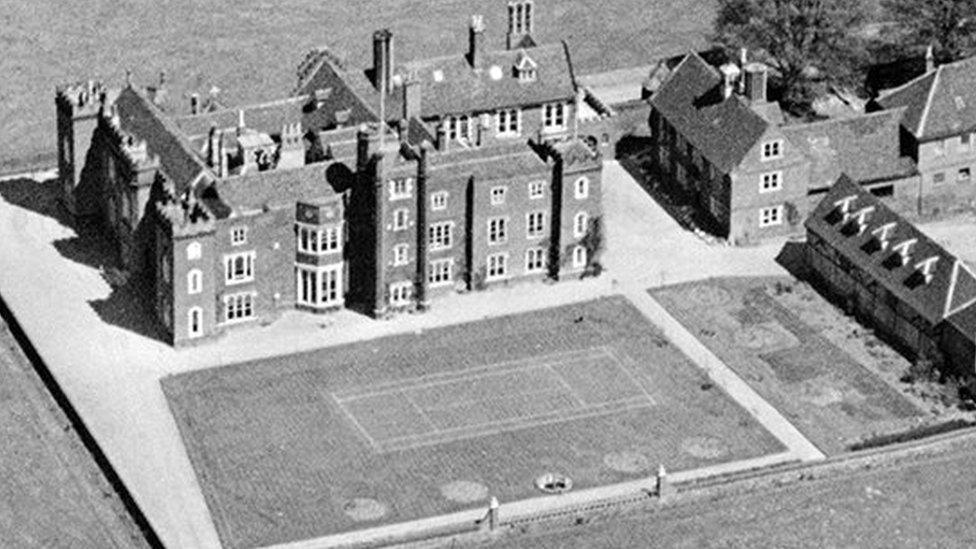
- Published15 April 2018
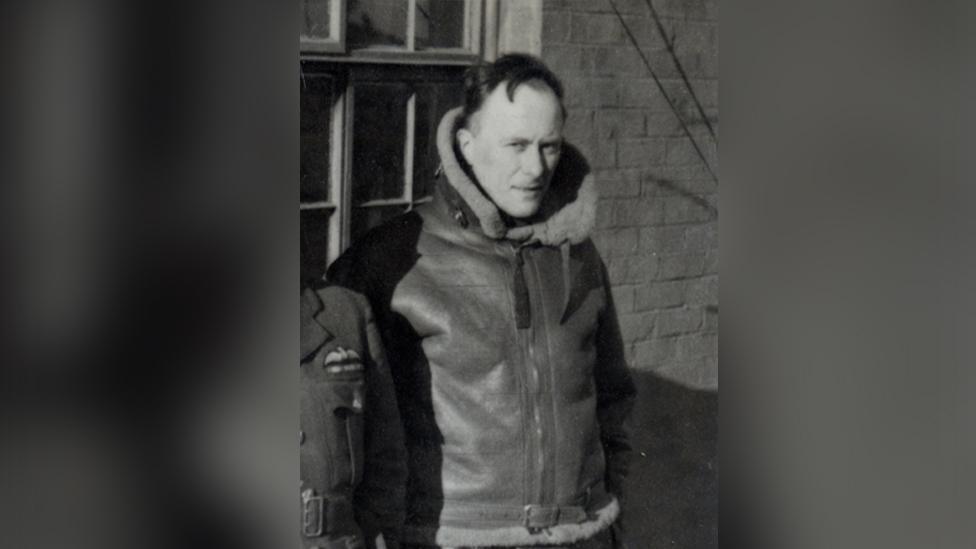
- Published21 September 2021
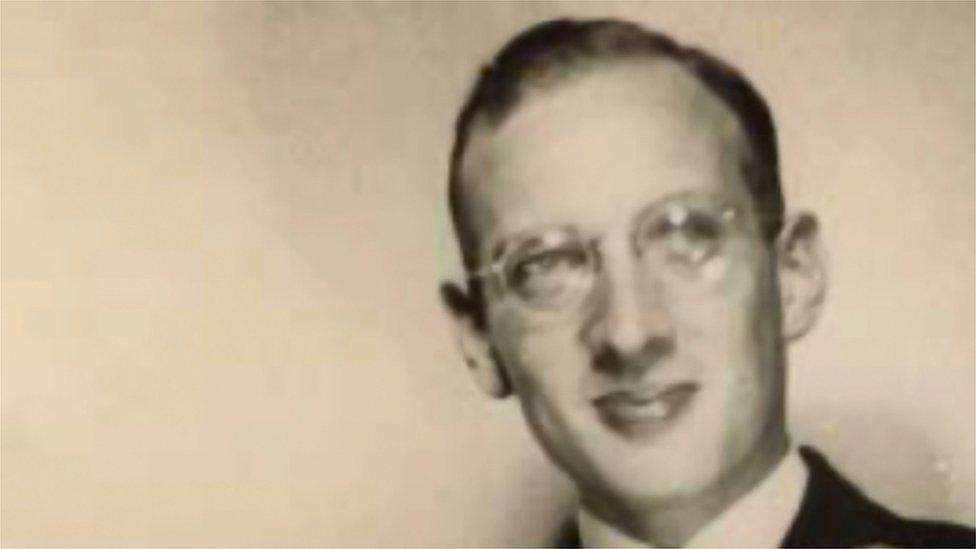
- Published26 June 2013
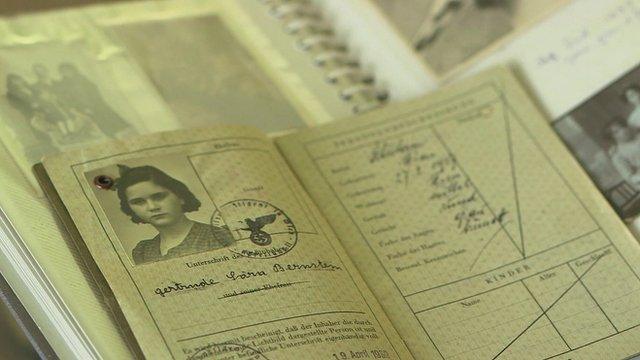
- Published28 April 2012
